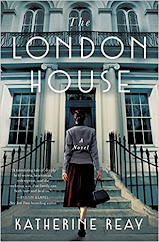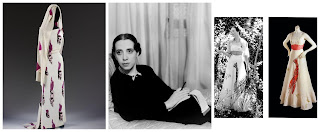272 pages
Published July 2023 by Random House Publishing Group
Publisher's Summary:
In Nina George’s New York Times bestseller The Little Paris Bookshop, beloved literary apothecary Jean Perdu is inspired to create a floating bookstore after reading a seminal pseudonymous novel about a young woman with a remarkable gift. The Little Village of Book Lovers is that novel.
“Everyone knows me, but none can see me. I’m that thing you call love.”
In a little town in the south of France in the 1960s, a dazzling encounter with Love itself changes the life of infant orphan Marie-Jeanne forever.
As a girl, Marie-Jeanne realizes that she can see the marks Love has left on the people around her—tiny glowing lights on the faces and hands that shimmer more brightly when the one meant for them is near. Before long, Marie-Jeanne is playing matchmaker, bringing true loves together in her village.
As she grows up, Marie-Jeanne helps her foster father, Francis, begin a mobile library that travels throughout the many small mountain towns in the region of Nyons. She finds herself bringing soulmates together every place they go—and there are always books that play a pivotal role in that quest. However, the only person that Marie-Jeanne can’t seem to find a soulmate for is herself. She has no glow of her own, though she waits and waits for it to appear. Everyone must have a soulmate, surely—but will Marie-Jeanne be able to recognize hers when Love finally comes her way?
My Thoughts:
Last fall my book club read Nina George's The Little Paris Bookshop and it was a big hit. So when I was putting together this year's reading list and found that this book is meant to be the book referenced in that book, Southern Lights, I thought it would be a great follow up that we would surely enjoy.
We did not. In fact, one member said she hated this book. I have never heard her say that about any book we've read; she is generally the one we count on to find the humorous bits and the highlights of books. She began with the book in print and finished with the audiobook version, which I think may have been the problem. On Goodreads, I noticed that a lot of the people who didn't like this book had listened to it and found it confusing. I can definitely see that; a lot of people who read it in print found it confusing as well. There is a lot of back and forth in the narration and Love as a narrator and a talking (although not literally) olive tree are tough for a lot of people to buy into.
To be fair, having not that long ago read The Little Paris Bookshop and having been told throughout that book that Southern Lights was the perfect book, George set readers up with very high expectations that were all but impossible to live up to. Further, in that book we were promised that this book would explore all kinds of love but when it came down to it, this one is all about romantic love between men and women. Very traditional love, even if told through a magical voice. Then, too, the title tells us that this is a book about book lovers, which would seem to be a different book entirely than a book about all kinds of love. Honestly, books only brought these people together tangentially - Francis' book mobile was more of a way to introduce us to a big cast of characters instead of a way for the characters to come together organically.
I think my book club agreed that a book that was primarily about Marie-Jeanne's gift and her being able to help people find each other would have made a better book. Or a book strictly about how the book mobile makes true book lovers out of all kinds of people and how they learn about each other would have been a good read. It just didn't work for us to pull the two stories together.
For most of us the ending of a book can make or break a book and this one might well have been saved by a different ending. We spent the entire book waiting for the sainted Marie-Jeanne to be rewarded for all of the good she did with love of her own. And we waited. And we waited. It was not until there were only five pages left that George gave us the slightest hint that Marie-Jeanne might finally find love. The lesson from that? Love is cruel. Which seems a strange way to come to the end of a book all about love.






















